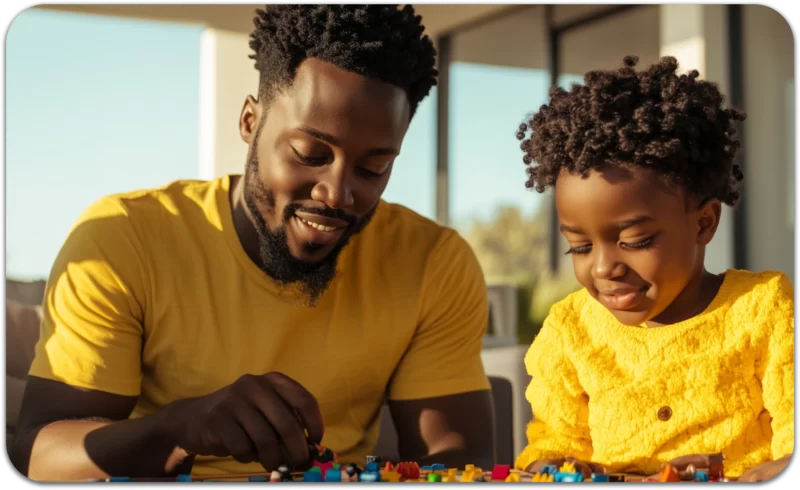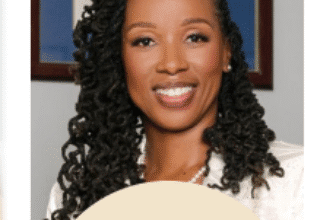Let’s be honest, talking about Black mental health myths in the community hasn’t always been easy. For generations, we’ve been taught to be strong, keep pushing, pray harder, and keep our business in the family. Vulnerability was often seen as weakness, and therapy? That was for “other people.”
But here’s the truth: strength is not the absence of struggle. Addressing mental health myths directly helps us break stigma and find the support we deserve.
I can’t tell you how many times I’ve heard a friend or client whisper, “I thought I was the only one going through this.” And yet, studies show that Black adults are 20% more likely than white adults to report serious psychological distress, yet we’re half as likely to receive the care we need.
Why? Because myths, stigma, and systemic barriers keep too many of us from seeking help. It’s time to change that. Let’s unpack five common Black mental health myths and replace them with truth, healing, and hope.
Myth 1: “Therapy Is for White People”
I grew up hearing this one on repeat. Therapy was often painted as a “luxury” for other folks. In many Black families, the idea of talking to a stranger about private struggles was almost unthinkable.
But here’s the reality: therapy is for everyone.
Therapists who specialize in working with Black clients understand that mental health challenges don’t mean we’re “weak”, they mean we’re human. Whether it’s managing stress, unpacking generational trauma, or navigating everyday pressures, therapy can provide tools that our families and communities were never given.
The shift is happening, too: more Black therapists are entering the field, and more Black clients are prioritizing wellness. According to the Association of Black Psychologists, while only 4% of psychologists are currently Black, initiatives are underway to expand the workforce.
Seeking help isn’t abandoning our culture, it’s expanding our strength.
Myth 2: “If I Have Faith, I Don’t Need Therapy”
Faith and spirituality have always been the heartbeat of our communities, and prayer can be powerful. But prayer and therapy are not competitors; they’re partners.
Imagine this: you pray for healing from a broken leg, but you still see a doctor to set the bone. Mental health is no different.
A culturally competent therapist will respect your faith and, if you choose, integrate it into your healing journey. Research on culturally competent therapy shows that therapy doesn’t take you away from God; it can bring you closer; helping you process pain, strengthen resilience, and find peace without shame.
Take Action: Looking for faith-integrated therapy? Browse our directory of culturally aware providers who can honor your beliefs while supporting your mental wellness.
Myth 3: “I Don’t Have Time for Therapy”
Between work, caregiving, church, and community responsibilities, many Black families are doing everything for everyone else. We push ourselves until we’re running on fumes and convince ourselves we don’t have time to pause.
But here’s the thing: burnout doesn’t ask for permission. Neither does anxiety, depression, or grief.
Therapy isn’t “one more thing on your list”, it’s a space to refill your cup so you can keep showing up for the people you love. And with virtual sessions and flexible scheduling, accessing therapy has never been easier.
Your healing is not a luxury. It’s a priority.
Myth 4: “I Can’t Afford Therapy”
Money can be a real barrier but it doesn’t have to be a dealbreaker.
There are more affordable options today than ever before:
- Sliding-scale therapy based on income
- Community clinics that offer free or low-cost sessions
- Employer assistance programs (EAPs) that include counseling benefits
- Virtual therapy platforms with reduced rates
- Referral networks (like ours!) that connect you with identity-affirming, cost-conscious providers
You deserve care that fits your life and your budget. Healing should not be reserved for the wealthy, and thankfully, it doesn’t have to be.
For help understanding stigma across different communities, read: 11 Organizations That Challenge Mental Health Stigma.
Myth 5: “Therapists Don’t Understand Black People”
This one is personal and for many, it’s true if you don’t find the right therapist.
Mental health care hasn’t always served Black communities well. Historically, many providers lacked cultural awareness, leaving clients feeling unseen or judged. But things are changing.
More Black therapists and culturally competent providers are practicing than ever before. Even if your therapist doesn’t share your identity, what matters most is cultural humility, a provider’s ability to listen, affirm, and adapt to your lived experiences.
You deserve a therapist who doesn’t just hear your words but understands your world.
Take Action: Finding the right therapist matters. Our network includes providers trained in multicultural competence who understand the unique experiences of Black communities. You can also find support through GoodTherapy’s BIPOC therapist directory.

Shifting the Narrative on Black Mental Health Myths
Here’s what’s real:
- Your pain is valid.
- Your healing matters.
- Therapy is not weakness; it’s power.
According to Mental Health America, 19.7% of Black and African American adults experience a mental health condition each year, yet only one in three receives treatment. When we release stigma and embrace culturally responsive care, we create room for joy, resilience, and thriving.
You don’t have to carry everything alone.
Take Action: Your Path to Healing
It’s time to shift the narrative:
- Reflect on what you’ve been taught about mental health
- Realign your beliefs with your needs and your worth
- Rise into healing for yourself, your family, and generations to come
Understanding the intersection of mental health challenges is crucial. Learn about related issues that affect our community: The Last Taboo: Breaking Down the Stigma of Depression.
FAQ: Black Mental Health Myths
What are the biggest barriers to Black mental health care?
The primary barriers include stigma within the community, lack of culturally competent providers (only 4% of psychologists are Black), financial constraints, and historical mistrust of healthcare systems due to past medical discrimination.
How do I find a therapist who understands Black experiences?
Look for therapists who explicitly mention cultural competence, have experience with racial trauma, or are Black themselves. Use specialized directories, ask about their training in multicultural issues, and don’t hesitate to interview potential providers.
Can therapy work alongside my faith?
Absolutely. Many therapists integrate spirituality into treatment when clients request it. Faith-based therapy can strengthen your spiritual connection while providing professional mental health support.
What’s the difference between feeling sad and clinical depression?
While everyone experiences sadness, clinical depression involves persistent symptoms lasting weeks or months that interfere with daily functioning. These may include sleep changes, loss of interest in activities, feelings of hopelessness, and physical symptoms.
How much does therapy typically cost?
Therapy costs vary widely, from $50-200+ per session. Many options exist for reduced costs: sliding-scale fees, community mental health centers, employee assistance programs, and some insurance plans cover mental health services.
Is virtual therapy as effective as in-person sessions?
Research shows virtual therapy is equally effective for many mental health conditions. It also increases access for those in areas with limited providers or those facing transportation barriers.
Finding the right therapist doesn’t have to be overwhelming. Our referral network connects you with culturally responsive, identity-affirming providers who understand the unique challenges and strengths of Black communities.
The preceding article was solely written by the author named above. Any views and opinions expressed are not necessarily shared by GoodTherapy.org. Questions or concerns about the preceding article can be directed to the author or posted as a comment below.








